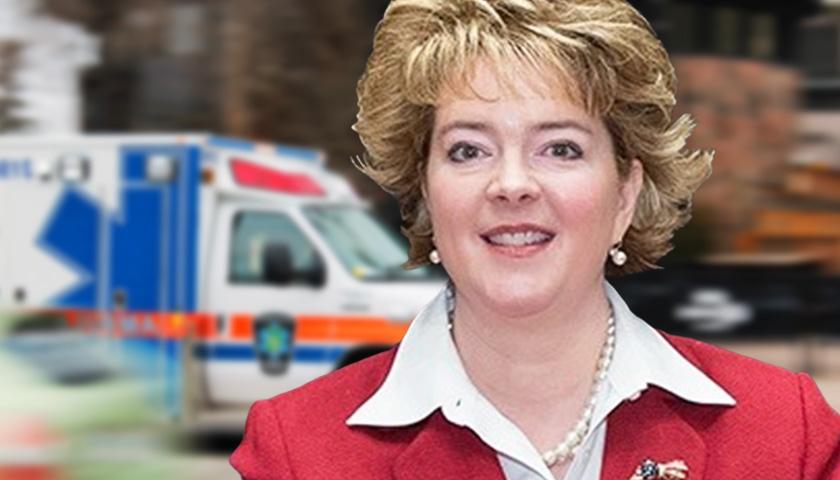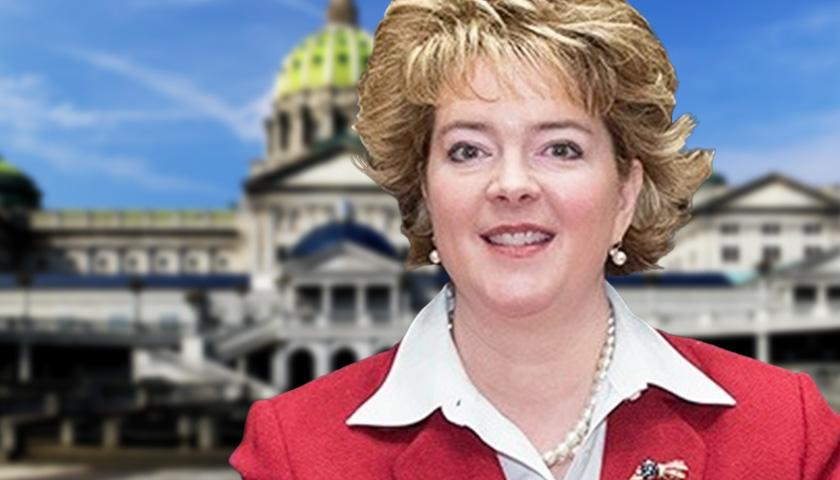by Anthony Hennen
Ambulance services could see their reimbursement rates go up, making the financial crisis for some EMS services less dire.
Currently, reimbursements aren’t enough to cover the average cost of sending an ambulance for an emergency call.
A proposal in the Senate posits that Medicaid should reimburse providers that transport patients more than five miles, as opposed to the existing 20-mile threshold.
The bill, sponsored by Sen. Michele Brooks, R-Greenville, is similar to previous bills that did not ultimately become law.
“As I’ve heard from local EMS providers, costs are significant and are rising, and the workforce is strained,” Brooks (pictured above) said in a press release. “This legislation will help address these factors, working in conjunction with the increased state reimbursement funding for EMS providers passed by the General Assembly last session.”
Ambulance and fire services have had long-running financial issues stemming from rising costs of equipment, workforce shortages, a high turnover rate, and the decline of volunteerism. The local companies “can no longer BBQ their way to a new fire truck,” as a Delaware County fire company leader testified to the House Democratic Policy Committee last week.
Whenever a resident makes an emergency call, EMS services are required by law to respond. Whether that call is for a heart attack or a hangnail, an ambulance must be sent if the caller requests it.
Though the average cost to run an ambulance is $550, the average reimbursement is $350, Don DeReamus, legislative committee chair of the Ambulance Association of Pennsylvania, told Democratic lawmakers last week. Raising the fee schedule to ensure reimbursements cover costs has been a priority for the AAP.
A similar bill in the House, House Bill 479 – sponsored by Rep. Lisa Borowski, D-Newtown Square – would remove the mileage minimum requirement entirely.
In June 2022, Republicans called Medicaid reimbursements a fundamental problem for ambulance services.
“A significant element of this crisis is financial,” Martin Causer, R-Bradford, said at a June 2022 press conference. “The commonwealth’s Medicaid reimbursement rates are very low compared to the actual costs and have only been increased twice in the last 20 years.”
– – –
Anthony Hennen is a reporter for The Center Square. Previously, he worked for Philadelphia Weekly and the James G. Martin Center for Academic Renewal. He is managing editor of Expatalachians, a journalism project focused on the Appalachian region.
Photo “Michele Brooks” by Senator Michele Brooks. Background Photo “Ambulance” by Jonnica Hill.





